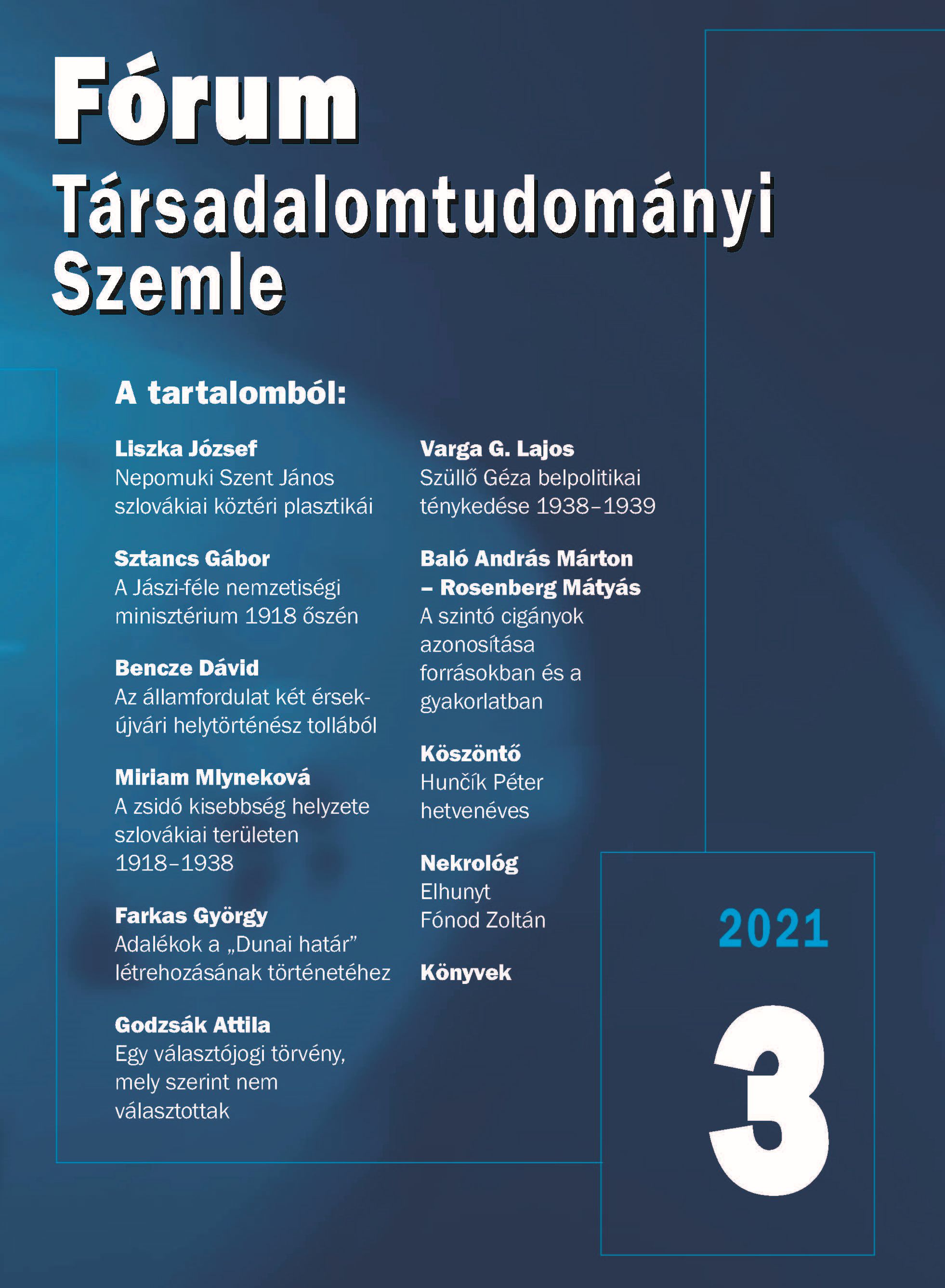Egy választójogi törvény, amely alapján sosem volt választás
An Electoral Law That Has Never Been the Basis for an Election
Article XVIII of Law No. 1939 on the Election of Members of Parliament in the Southern Slovakian Territories Re-Annexed to the Hungarian Holy Crown and in the Transcarpathian Territory Returned to the Hungarian Holy Crown
Author(s): Attila GodzsákSubject(s): History of Law, Political history, Interwar Period (1920 - 1939)
Published by: Fórum Kisebbségkutató Intézet
Keywords: First Vienna Award;electoral law;parliamentary elections;Felvidék;southern Slovakia;Kárpátalja;Transcarpathia;Subcarpathia
Summary/Abstract: In Hungary, the last electoral law before the end of the Second World War was passed by the Parliament in 1938, but at the time of its adoption it was not anticipated that the country would gain territory in the autumn of that year. In the territories returned by the First Vienna Award, although civil administration was introduced at the beginning of 1939 and the returning parts of the country were administratively united with the country, parliamentary elections were not held. This was explained for a number of reasons, including the differences between the former Czechoslovak and Hungarian electoral laws, and the reluctance of some to see the loss of their previous voting rights under the stricter Hungarian laws as a disenfranchisement. The Minister of the Interior drafted a "single-use" electoral law for the returning of southern Slovakia and Transcarpathia, which was intended to be temporary, and was the subject of a lengthy dispute in the House of Representatives, which affected the Hungarian electoral system as a whole. In the end, no elections were held under the adopted law. This paper presents this draft, its debate and the resulting law.
Journal: Fórum Társadalomtudományi Szemle
- Issue Year: XXIII/2021
- Issue No: 3
- Page Range: 105-128
- Page Count: 24
- Language: Hungarian

